
Crafoord Prize
Encyclopedia
The Crafoord Prize is an annual science prize established in 1980 by Holger Crafoord
, a Swedish industrialist, and his wife Anna-Greta Crafoord. Administered by the Royal Swedish Academy of Sciences
, the prize "is intended to promote international basic research in the disciplines: Astronomy
and Mathematics
, Geosciences
, Biosciences
, with particular emphasis on ecology
, and Polyarthritis
(rheumatoid arthritis
)", the disease from which Holger severely suffered in his last years. According to the Academy, "these disciplines are chosen so as to complement those for which the Nobel Prize
s are awarded." Only one award is given each year, according to a rotating scheme – astronomy and mathematics; then geosciences; then biosciences. A Crafoord Prize is only awarded for polyarthritis when a special committee decides that substantial progress in the field has been made. The recipient of the Crafoord Prize is announced each year in mid-January; on Crafoord Day in April, the prize is presented by the King of Sweden
, who also presents the Nobel Prize Awards at the ceremony in December. The prize sum, which as of 2011 is US$600,000, is intended to fund further research by the prize winner.
The inaugural winners, Vladimir Arnold
and Louis Nirenberg
, were cited by the Academy for their work in the field of non-linear differential equation
s. No women have been awarded the prize to date.
Holger Crafoord
Holger Crafoord was a Swedish industrialist and founded Gambro along with Nils Alwall, a company that would commercialize Alwall's research into artificial kidneys. He donated the initial funds for the establishment of the Crafoord Prize for scientific research.-See also:*Lund School of Economics...
, a Swedish industrialist, and his wife Anna-Greta Crafoord. Administered by the Royal Swedish Academy of Sciences
Royal Swedish Academy of Sciences
The Royal Swedish Academy of Sciences or Kungliga Vetenskapsakademien is one of the Royal Academies of Sweden. The Academy is an independent, non-governmental scientific organization which acts to promote the sciences, primarily the natural sciences and mathematics.The Academy was founded on 2...
, the prize "is intended to promote international basic research in the disciplines: Astronomy
Astronomy
Astronomy is a natural science that deals with the study of celestial objects and phenomena that originate outside the atmosphere of Earth...
and Mathematics
Mathematics
Mathematics is the study of quantity, space, structure, and change. Mathematicians seek out patterns and formulate new conjectures. Mathematicians resolve the truth or falsity of conjectures by mathematical proofs, which are arguments sufficient to convince other mathematicians of their validity...
, Geosciences
Geology
Geology is the science comprising the study of solid Earth, the rocks of which it is composed, and the processes by which it evolves. Geology gives insight into the history of the Earth, as it provides the primary evidence for plate tectonics, the evolutionary history of life, and past climates...
, Biosciences
Biology
Biology is a natural science concerned with the study of life and living organisms, including their structure, function, growth, origin, evolution, distribution, and taxonomy. Biology is a vast subject containing many subdivisions, topics, and disciplines...
, with particular emphasis on ecology
Ecology
Ecology is the scientific study of the relations that living organisms have with respect to each other and their natural environment. Variables of interest to ecologists include the composition, distribution, amount , number, and changing states of organisms within and among ecosystems...
, and Polyarthritis
Polyarthritis
Polyarthritis is any type of arthritis which involves 5 or more joints simultaneously. It is usually associated with autoimmune conditions.Polyarthritis may be experienced at any age and is not gender specific.-Causes:...
(rheumatoid arthritis
Rheumatoid arthritis
Rheumatoid arthritis is a chronic, systemic inflammatory disorder that may affect many tissues and organs, but principally attacks synovial joints. The process produces an inflammatory response of the synovium secondary to hyperplasia of synovial cells, excess synovial fluid, and the development...
)", the disease from which Holger severely suffered in his last years. According to the Academy, "these disciplines are chosen so as to complement those for which the Nobel Prize
Nobel Prize
The Nobel Prizes are annual international awards bestowed by Scandinavian committees in recognition of cultural and scientific advances. The will of the Swedish chemist Alfred Nobel, the inventor of dynamite, established the prizes in 1895...
s are awarded." Only one award is given each year, according to a rotating scheme – astronomy and mathematics; then geosciences; then biosciences. A Crafoord Prize is only awarded for polyarthritis when a special committee decides that substantial progress in the field has been made. The recipient of the Crafoord Prize is announced each year in mid-January; on Crafoord Day in April, the prize is presented by the King of Sweden
Monarch of Sweden
The monarchy of Sweden is the constitutional monarchy of the Kingdom of Sweden. The present monarch, Carl XVI Gustaf, has reigned since 15 September 1973. He and his immediate family undertake various official, ceremonial and representational duties...
, who also presents the Nobel Prize Awards at the ceremony in December. The prize sum, which as of 2011 is US$600,000, is intended to fund further research by the prize winner.
The inaugural winners, Vladimir Arnold
Vladimir Arnold
Vladimir Igorevich Arnold was a Soviet and Russian mathematician. While he is best known for the Kolmogorov–Arnold–Moser theorem regarding the stability of integrable Hamiltonian systems, he made important contributions in several areas including dynamical systems theory, catastrophe theory,...
and Louis Nirenberg
Louis Nirenberg
Louis Nirenberg is a Canadian mathematician, and one of the outstanding analysts of the twentieth century. He has made fundamental contributions to linear and nonlinear partial differential equations and their application to complex analysis and geometry.He was born in Hamilton, Ontario and...
, were cited by the Academy for their work in the field of non-linear differential equation
Differential equation
A differential equation is a mathematical equation for an unknown function of one or several variables that relates the values of the function itself and its derivatives of various orders...
s. No women have been awarded the prize to date.
Winners
| Year | Category | Image | Laureate | Nationality | Work |
|---|---|---|---|---|---|
| 1982 | Mathematics | 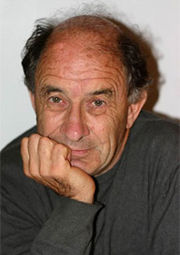 |
Vladimir Arnold Vladimir Arnold Vladimir Igorevich Arnold was a Soviet and Russian mathematician. While he is best known for the Kolmogorov–Arnold–Moser theorem regarding the stability of integrable Hamiltonian systems, he made important contributions in several areas including dynamical systems theory, catastrophe theory,... |
Theory of non-linear differential equations | |
| Louis Nirenberg Louis Nirenberg Louis Nirenberg is a Canadian mathematician, and one of the outstanding analysts of the twentieth century. He has made fundamental contributions to linear and nonlinear partial differential equations and their application to complex analysis and geometry.He was born in Hamilton, Ontario and... |
|||||
| 1983 | Geosciences | Edward Lorenz | Geophysical hydrodynamics | ||
| — | Henry Stommel Henry Stommel Henry Melson Stommel was a major contributor to the field of physical oceanography. Beginning in the 1940s, he advanced theories about global ocean circulation patterns and the behavior of the Gulf Stream that form the basis of physical oceanography today... |
||||
| 1984 | Biosciences | Daniel H. Janzen Daniel Janzen Daniel Hunt Janzen is an evolutionary ecologist, naturalist, and conservationist and the son of a previous Director of the US Fish and Wildlife Service... |
Co-evolution | ||
| 1985 | Astronomy | 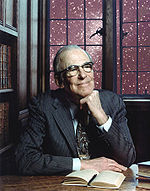 |
Lyman Spitzer Lyman Spitzer Lyman Strong Spitzer, Jr. was an American theoretical physicist and astronomer best known for his research in star formation, plasma physics, and in 1946, for conceiving the idea of telescopes operating in outer space... |
Studies of the interstellar medium | |
| 1986 | Geosciences | — | Claude Allègre Claude Allègre Claude Allègre is a French politician and scientist.- Scientific work :The main scientific area of Claude Allègre is geochemistry.... |
Isotope geochemical relations | |
| — | Gerald J. Wasserburg Gerald J. Wasserburg Gerald J. Wasserburg is an American geologist. He is the John D. MacArthur Professor of Geology and Geophysics, Emeritus, at the California Institute of Technology... |
||||
| 1987 | Biosciences | — | Eugene P. Odum | Ecosystem ecology | |
| Howard T. Odum Howard T. Odum Howard Thomas Odum was an American ecologist... |
|||||
| 1988 | Mathematics | Pierre Deligne Pierre Deligne - See also :* Deligne conjecture* Deligne–Mumford moduli space of curves* Deligne–Mumford stacks* Deligne cohomology* Fourier–Deligne transform* Langlands–Deligne local constant- External links :... |
Algebraic geometry | ||
| Alexander Grothendieck Alexander Grothendieck Alexander Grothendieck is a mathematician and the central figure behind the creation of the modern theory of algebraic geometry. His research program vastly extended the scope of the field, incorporating major elements of commutative algebra, homological algebra, sheaf theory, and category theory... |
|||||
| 1989 | Geosciences |  |
James Van Allen James Van Allen James Alfred Van Allen was an American space scientist at the University of Iowa.The Van Allen radiation belts were named after him, following the 1958 satellite missions in which Van Allen had argued that a Geiger counter should be used to detect charged particles.- Life and career :* September... |
Exploration of space, the discovery the Van Allen belts | |
| 1990 | Biosciences | Paul R. Ehrlich Paul R. Ehrlich Paul Ralph Ehrlich is an American biologist and educator who is the Bing Professor of Population Studies in the department of Biological Sciences at Stanford University and president of Stanford's Center for Conservation Biology. By training he is an entomologist specializing in Lepidoptera , but... |
Dynamics and genetics of fragmented populations | ||
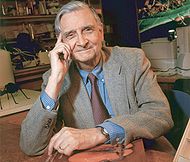 |
Edward Osborne Wilson | Theory of island biogeography | |||
| 1991 | Astronomy | Allan Rex Sandage | Study of galaxies | ||
| 1992 | Geosciences | — | Adolf Seilacher Adolf Seilacher Adolf "Dolf" Seilacher is a German palaeontologist who has made major contributions to evolutionary and ecological palaeobiology in a career stretching over 60 years. He won the Crafoord Prize in 1992, the Paleontological Society Medal in 1994 and the Palaeontological Association's Lapworth Medal... |
Research into evolution of life | |
| 1993 | Biosciences | W. D. Hamilton W. D. Hamilton William Donald Hamilton FRS was a British evolutionary biologist, widely recognised as one of the greatest evolutionary theorists of the 20th century.... |
Theories of kin selection and genetic relationship | ||
| Seymour Benzer Seymour Benzer Seymour Benzer was an American physicist, molecular biologist and behavioral geneticist. His career began during the molecular biology revolution of the 1950s, and he eventually rose to prominence in the fields of molecular and behavioral genetics. He led a productive genetics research lab both at... |
Genetical and neurophysiological studies of fruit flies | ||||
| 1994 | Mathematics | — | Simon Donaldson Simon Donaldson Simon Kirwan Donaldson FRS , is an English mathematician known for his work on the topology of smooth four-dimensional manifolds. He is now Royal Society research professor in Pure Mathematics and President of the Institute for Mathematical Science at Imperial College London... |
Four-dimensional geometry | |
| Shing-Tung Yau Shing-Tung Yau Shing-Tung Yau is a Chinese American mathematician working in differential geometry. He was born in Shantou, Guangdong Province, China into a family of scholars from Jiaoling, Guangdong Province.... |
Non-linear techniques in differential geometry | ||||
| 1995 | Geosciences | — | Willi Dansgaard Willi Dansgaard Willi Dansgaard was a Danish paleoclimatologist. He was Professor Emeritus of Geophysics at the University of Copenhagen and a member of the Royal Danish Academy of Science and Letters, the Royal Swedish Academy of Sciences, the Icelandic Academy of Sciences, and the Danish Geophysical Society.-... |
Development of isotope geological analysis methods | |
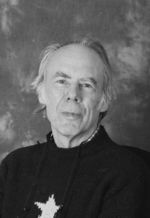 |
Nicholas Shackleton Nicholas Shackleton Sir Nicholas John Shackleton FRS was a British geologist and climatologist who specialised in the Quaternary Period... |
||||
| 1996 | Biosciences | Robert M. May Robert May, Baron May of Oxford Robert McCredie May, Baron May of Oxford, OM, AC, PRS is an Australian scientist who has been Chief Scientific Adviser to the UK Government, President of the Royal Society, and a Professor at Sydney and Princeton. He now holds joint professorships at Oxford, and Imperial College London... |
Ecological research | ||
| 1997 | Astronomy | Fred Hoyle Fred Hoyle Sir Fred Hoyle FRS was an English astronomer and mathematician noted primarily for his contribution to the theory of stellar nucleosynthesis and his often controversial stance on other cosmological and scientific matters—in particular his rejection of the "Big Bang" theory, a term originally... |
Study of nuclear processes in stars, stellar evolution | ||
| — | Edwin Salpeter | ||||
| 1998 | Geosciences | — | Don L. Anderson Don L. Anderson Don Lynn Anderson is an American geophysicist who has made important contributions to the determination of the large-scale structure of the Earth's interior, especially using seismological methods. He is Eleanor and John R. McMillan Professor emeritus of geophysics at the California Institute of... |
Study of the structures and processes in the interior of the Earth | |
| — | Adam M. Dziewonski Adam Dziewonski Adam Marian Dziewoński is a Polish-American geophysicist who has made seminal contributions to the determination of the large-scale structure of the Earth's interior and the nature of earthquakes using seismological methods. He is the Frank B. Baird, Jr... |
||||
| 1999 | Biosciences | 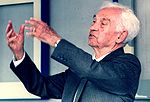 |
Ernst Mayr | Developing the concept of evolutionary biology | |
| — | John Maynard Smith John Maynard Smith John Maynard Smith,His surname was Maynard Smith, not Smith, nor was it hyphenated. F.R.S. was a British theoretical evolutionary biologist and geneticist. Originally an aeronautical engineer during the Second World War, he took a second degree in genetics under the well-known biologist J.B.S.... |
||||
| George C. Williams George C. Williams Professor George Christopher Williams was an American evolutionary biologist.Williams was a professor emeritus of biology at the State University of New York at Stony Brook. He was best known for his vigorous critique of group selection. The work of Williams in this area, along with W. D... |
|||||
| 2000 | Polyarthritis | — | Marc Feldmann Marc Feldmann Sir Marc Feldmann is an Australian immunologist, and a professor at the Imperial College School of Medicine where he is a head of the Kennedy Institute of Rheumatology.-Biography:... |
Definition of TNF-alpha | |
| — | Ravinder N. Maini Ravinder N. Maini Sir Ravinder Nath Maini is rheumatology professor at the Kennedy Institute, part of Imperial College London. Maini was born in Ludhiana in the Punjab region of India but has lived most of his life in the UK... |
||||
| 2001 | Mathematics | Alain Connes Alain Connes Alain Connes is a French mathematician, currently Professor at the Collège de France, IHÉS, The Ohio State University and Vanderbilt University.-Work:... |
Theory of operator algebras, founder of the non-commutative geometry | ||
| 2002 | Geosciences | — | Dan P. McKenzie | Dynamics of the lithosphere | |
| 2003 | Biosciences | — | Carl Woese Carl Woese Carl Richard Woese is an American microbiologist and physicist. Woese is famous for defining the Archaea in 1977 by phylogenetic taxonomy of 16S ribosomal RNA, a technique pioneered by Woese and which is now standard practice. He was also the originator of the RNA world hypothesis in 1977,... |
Third domain of life | |
| 2004 | Polyarthritis | — | Eugene C. Butcher Eugene C. Butcher Eugene C. "Gene" Butcher, M.D. is an immunologist and a Professor of Pathology at Stanford University -Research focus:Butcher and his research team study the trafficking of white blood cells , including their interactions with the endothelial lining of blood vessels at sites of leukocyte... |
Study of molecular mechanisms concerning white blood cells | |
| — | Timothy A. Springer Timothy A. Springer Timothy A. "Tim" Springer, Ph.D. is an immunologist and Professor at Harvard University -Research focus:His lab elucidated different steps in the homing process of lymphocytes with a special focus on the integrin LFA-1. His research encompasses the cell adhesion molecules and chemotactic signals... |
||||
| 2005 | Astronomy | — | James E. Gunn James E. Gunn James Edward Gunn is the Eugene Higgins Professor of Astronomy at Princeton University. Gunn's early theoretical work in astronomy has helped establish the current understanding of how galaxies form, and the properties of the space between galaxies... |
Understanding the large-scale structure of the Universe | |
| — | James Peebles | ||||
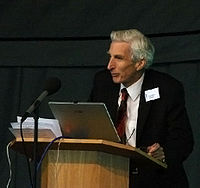 |
Martin Rees | ||||
| 2006 | Geosciences | — | Wallace S. Broecker Wallace S. Broecker Wallace Smith Broecker is the Newberry Professor in the Department of Earth and Environmental Sciences at Columbia University and a scientist at Columbia's Lamont-Doherty Earth Observatory... |
Research into the global carbon cycle | |
| 2007 | Biosciences | — | Robert Trivers Robert Trivers Robert L. Trivers is an American evolutionary biologist and sociobiologist and Professor of Anthropology and Biological Sciences at Rutgers University. Trivers is most noted for proposing the theories of reciprocal altruism , parental investment , facultative sex ratio determination , and... |
Analysis of social evolution | |
| 2008 | Astronomy | Rashid Alievich Sunyaev Rashid Sunyaev Rashid Alievich Sunyaev was born in Tashkent, Uzbek SSR, on March 1, 1943 to a Tatar family, and educated at the Moscow Institute of Physics and Technology and Moscow State University . He became a professor at MIPT in 1974... |
Contributions to high-energy astrophysics and cosmology | ||
| Mathematics | 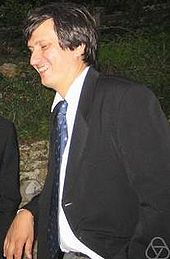 |
Maxim Kontsevich Maxim Kontsevich Maxim Lvovich Kontsevich is a Russian mathematician. He is a professor at the Institut des Hautes Études Scientifiques and a distinguished professor at the University of Miami... |
Contributions to mathematics from modern theoretical physics | ||
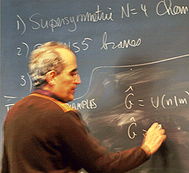 |
Edward Witten Edward Witten Edward Witten is an American theoretical physicist with a focus on mathematical physics who is currently a professor of Mathematical Physics at the Institute for Advanced Study.... |
||||
| 2009 | Polyarthritis | Charles Dinarello | Isolation of interleukins, understanding their role in the onset of inflammatory diseases | ||
| Tadamitsu Kishimoto | |||||
| Toshio Hirano Toshio Hirano is a Japanese immunologist best known for his discovery of interleukin-6.- Chronology :*1972 - graduated from Graduate School of Medicine, Osaka University*1980 - assistant professor in the School of Medicine, Kumamoto University... |
|||||
| 2010 | Geosciences | Walter Munk Walter Munk Walter Heinrich Munk is an American physical oceanographer. He is professor of geophysics emeritus and holds the Secretary of the Navy/Chief of Naval Operations Oceanography Chair at Scripps Institution of Oceanography in La Jolla, California.-Early life:Born in 1917 in Vienna, Austria-Hungary,... |
“for his pioneering and fundamental contributions to our understanding of ocean circulation, tides and waves, and their role in the Earth’s dynamics”. | ||
| 2011 | Biosciences | Ilkka Hanski Ilkka Hanski Ilkka A. Hanski FRS is a Finnish scientist, working in the field of ecology, at Helsinki University, Finland. The Metapopulation Research Group led by Hanski has been nominated as a Center of Excellence by the Academy of Finland... |
“for his pioneering studies on how spatial variation affects the dynamics of animal and plant populations”. | ||

